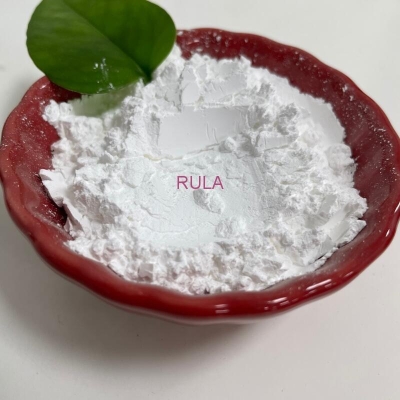-
Categories
-
Pharmaceutical Intermediates
-
Active Pharmaceutical Ingredients
-
Food Additives
- Industrial Coatings
- Agrochemicals
- Dyes and Pigments
- Surfactant
- Flavors and Fragrances
- Chemical Reagents
- Catalyst and Auxiliary
- Natural Products
- Inorganic Chemistry
-
Organic Chemistry
-
Biochemical Engineering
- Analytical Chemistry
- Cosmetic Ingredient
-
Pharmaceutical Intermediates
Promotion
ECHEMI Mall
Wholesale
Weekly Price
Exhibition
News
-
Trade Service
Boronic acid, B-(3-methoxy-4-pyridinyl)-, hydrate (1:1), also known as 3-methoxy-4-pyridine boronic acid hydrate, is an important synthetic intermediate used in the production of a variety of chemicals, pharmaceuticals, and agrochemicals.
This article will outline the most commonly used synthetic routes for the synthesis of boronic acid, B-(3-methoxy-4-pyridinyl)-, hydrate (1:1).
- Hydrolysis of boronate esters
One of the most common methods for the synthesis of boronic acid, B-(3-methoxy-4-pyridinyl)-, hydrate (1:1), is the hydrolysis of boronate esters.
Boronate esters are compounds that contain a boron atom bonded to both an organic acid and an alcohol.
The synthesis of boronic acid, B-(3-methoxy-4-pyridinyl)-, hydrate (1:1) via hydrolysis of boronate esters typically involves the reaction of a boronate ester with water, in the presence of a catalyst such as hydrochloric acid, to produce the desired boronic acid.
- Reduction of boronic acid bromides
Another common method for the synthesis of boronic acid, B-(3-methoxy-4-pyridinyl)-, hydrate (1:1), is the reduction of boronic acid bromides.
Boronic acid bromides are compounds that contain a boron atom bonded to a bromine atom and a hydroxyl group.
The reduction of boronic acid bromides typically involves the reaction of the boronic acid bromide with a reducing agent such as lithium aluminum hydride (LiAlH4) in the presence of a solvent such as ether or THF.
- Reductive alkylation of boric acid with 3-methoxy-4-pyridine
A third method for the synthesis of boronic acid, B-(3-methoxy-4-pyridinyl)-, hydrate (1:1), is the reductive alkylation of boric acid with 3-methoxy-4-pyridine.
This method involves the reaction of boric acid with 3-methoxy-4-pyridine in the presence of a reducing agent such as lithium aluminum hydride (LiAlH4) and a solvent such as DMF or DMA.
- From boric acid and 3-methoxy-4-pyridine via boronate esters
A fourth method for the synthesis of boronic acid, B-(3-methoxy-4-pyridinyl)-, hydrate (1:1), is the synthesis of boronate esters from boric acid and 3-methoxy-4-pyridine, followed by hydrolysis of the boronate esters.
This method involves the reaction of boric acid and 3-methoxy-4-pyridine in the presence of a Lewis acid catalyst such as aluminum chloride to form a boronate ester.
The boronate ester is then hydrolyzed using a strong acid such as hydrochloric acid to produce the desired boronic acid.
In conclusion, there are several synthetic routes for the synthesis of boronic acid, B-(3-methoxy-4-pyridinyl)-, hydrate (1:1), including hydrolysis of boronate esters, reduction of boronic acid bromides, reductive alkylation of boric acid with 3-methoxy-4-pyridine, and synthesis of boronate esters from boric acid and 3






